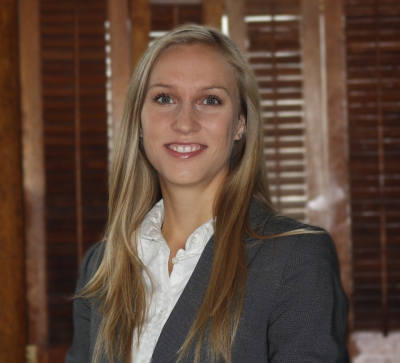Harvard’s Center for International Development is looking for an Executive Coordinator, someone who will be an integral part of the Center’s activities and become a liaison between the Center’s faculty, fellows, staff, students, and important contacts from around the world.
 Are you interested in learning more about what this position has to offer and know if you would make a good fit? Who better than the person doing the job, Karen Vanderwillik, to tell you about the great advantages and challenges of being CID’s Executive Coordinator?
Are you interested in learning more about what this position has to offer and know if you would make a good fit? Who better than the person doing the job, Karen Vanderwillik, to tell you about the great advantages and challenges of being CID’s Executive Coordinator?
Karen has worked in the Center for almost 2 years and will be going on maternity leave very soon. In this interview, she provides an insider perspective on the job and shares details about her exciting experience at CID.
CID: So Karen, what attracted you to this position in the first place?
KV: I was attracted to the opportunity to work at a leading economic development think-tank at one of the world’s most renowned universities, in a position that would allow me to learn another side of academia - how research centers operate, how think-tanks get funding and how new research ideas are disseminated to larger audiences. At the time I was volunteering with CID in Albania and I could see the impact its research has on real public policy and economic issue. I was interested in supporting the center and its staff in continuing this work.
CID: What are the advantages of working alongside Harvard Kennedy School faculty, fellows and staff?
KV: HKS is a very dynamic school and there are plenty of opportunities to get involved and meet people from different research centers. The position gave me the opportunity to interact with high profile policy makers, like Albania’s Prime Minister and Mexico’s Minister of Finance. CID’s team is also very interdisciplinary, and it’s fascinating to see how they bring alternative perspectives to tackling development and policy challenges. The job itself is very time-consuming, which means I don’t have a lot of spare time to attend seminars and classes, but I have learned a lot from supporting staff and faculty in preparing publications and presentations, and from participating in CID events and talks.
CID: What would you say are the some of the key skills for someone in this role?
KV: This role definitely requires strong organizational skills, attention to detail, and effective time-management. But it also requires someone who can make effective judgment calls, maintain calm in a sometimes stressful and fast-paced environment, and someone who can see the big picture beyond the daily tasks of scheduling, coordinating and organizing. In this role it is important to be aware of CID’s key stakeholders and research projects so that you can help make important connections between faculty, fellows and students, maintain good relations with key donors, and identify new potential opportunities.
CID: What are the main challenges of a being in a position like yours?
KV: CID is a very busy place and there are a lot of people wishing to engage with the center and its directors. This position involves managing constant and often competing requests for support, for meetings, for interviews, and for assistance. It requires learning to prioritize, making effective judgment calls on what can and cannot be done, and balancing competing demands on your limited time.
CID: What are the main learnings you take from this position – and you believe are applicable to your professional future?
KV: The position involves a lot of scheduling and administrative work, but it also has allowed me to directly support important goals for CID’s ongoing growth. Working closely with the directors provides a unique opportunity to learn about the more strategic and operational aspects of a leading research center. I have learned a lot about effectively engaging with governments and donors, developing research and funding strategies, and disseminating complex research ideas to broader audiences.
CID: And finally, who would you recommend this position to?
KV: I would recommend this position to someone who is interested in the operational aspects of a research center or think-tank, someone who doesn’t mind dealing with constantly changing schedules, and someone who enjoys engaging with a wide variety people – students, faculty, government officials, researchers, and development practitioners. CID is one of the fastest-growing research centers at Harvard and is making a significant impact in development research and practice. Our team is highly-motivated and engaged, and they are great people to work with. Overall it’s a light and fun environment to work in and we do all sorts of team building activities throughout the year. Which reminds me: volleyball skills will come in handy as our summer tournament approaches!